“Nicolas Sarkozy is today one of France’s problems, among the principal problems that need to be sorted out,” declared former French prime minister Dominique de Villepin in November 2010, during an interview on Europe 1 radio.
Nicolas Sarkozy was then three-and-a-half years into his five-year presidency, and Villepin was being interviewed about a book he had just published, De l'esprit de cour, la malédiction française, (roughly translated as ‘The Courtesan Spirit, a French Malediction’), which was highly critical of Sarkozy’s presidency.
The two men, both from the same conservative UMP party, were bitter rivals in the race - ultimately won by Sarkozy - to become the UMP’s presidential candidate for the 2007 elections. Villepin, a stalwart ally of Sarkozy’s UMP predecessor as president, Jacques Chirac, had been left on the political sidelines following Sarkozy’s election in 2007.
In his 2010 book, Villepin launched a vehement attack on Sarkozy: “Sarkozy-ism [sic] represents France as seen from the top, from the viewpoint of elites who want to reshape the nation in their image, or rather in the image of their own interests,” he wrote. “The man [...] wants to be loved for who he is. He has created a vision of a France that resembles him, that is to say individualist, hungry for social and personal success, obsessed by material possessions and indifferent to History.”
Sarkozy had, wrote Villepin, “devalued the presidency by over-exposing it in the media” and further lowered it “by his verbal excesses”.

Enlargement : Illustration 1
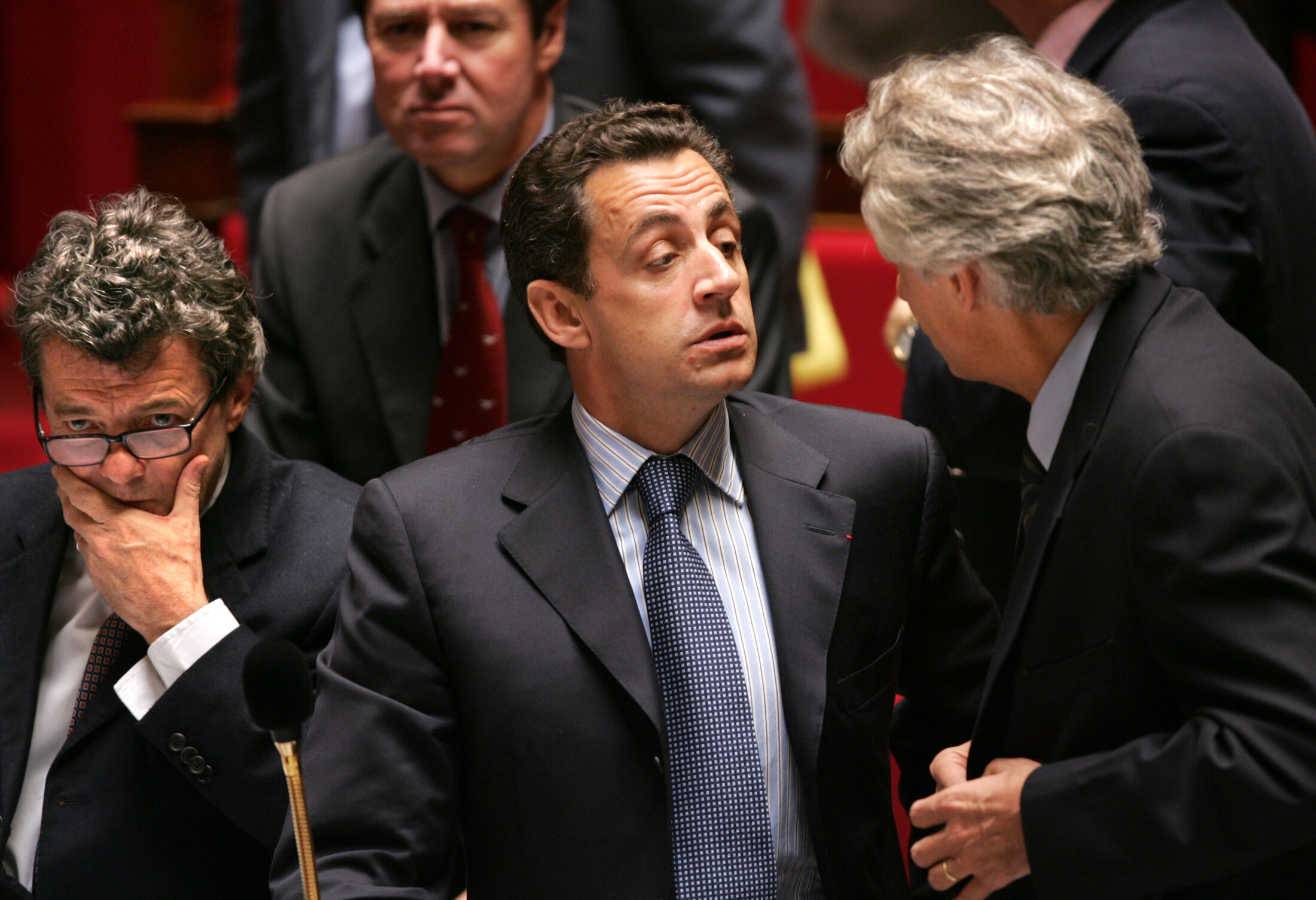
A few months before the publication of his book, a Paris court had cleared Villepin cleared of all charges in the Clearstream affair, so-named after a Luxembourg bank where a number of political personalities supposedly held money-laundering accounts. The allegations centred on fake lists of account holders, which included the name of Sarkozy, that were sent to a French magistrate in 2004. Villepin, then interior minister, was later accused of deliberately withholding information that the lists were forged in order to damage Sarkozy’s future presidential hopes. Sarkozy, it is widely reported, promised to hang Villepin “from a butcher’s hook” in revenge.
But it now transpires that Villepin has finally joined what he once dismissed as Sarkozy’s “frightened court of parrots” and, astonishingly, appears to have become a supporter for the former president’s return. “Nicolas Sarkozy has changed” he said in an interview earlier this month on BFM-TV news channel. “He has drawn the lessons of the experience of being in power, of failure in power, and the hurt and trials he has undergone.”
His sudden U-Turn is far from unique among those who yesterday made up the anti-Sarkozy camp on the Right and who could hardly find words harsh enough following his defeat by François Hollande in 2012. Sarkozy had pledged in March 2012 that he would put an end to his political career if he were to be defeated in the elections two months later.
Scouring the archives, Mediapart has retrieved a number of frank comments by Sarkozy’s former ministers which paint the picture of a contemptuous, self-centred and inconstant figure, but whose talent as a showman is roundly recognised.
The man who hopes to return to the Elysée Palace in presidential elections due in 2017 continues to fascinate his conservative camp, despite leading it to defeat in 2012. “You can love Nicolas Sarkozy or hate him, hold him up to public obloquy, cover him in praise, find inner sentiment for him or none, vomit him, [but] everything continues to rush and swarm around him,” wrote Bruno Le Maire, who served as agriculture minister under Sarkozy from 2009-2012, in his 2013 book Jours de pouvoir (‘Days of Power’).
In an interview in July this year with weekly magazine L’Express, Le Maire, 45, who has declared himself a rival candidate to Sarkozy for the presidency of the UMP party, spoke of his despair that those of his generation in the party would “line themselves behind him [Sarkozy] like sheep.”
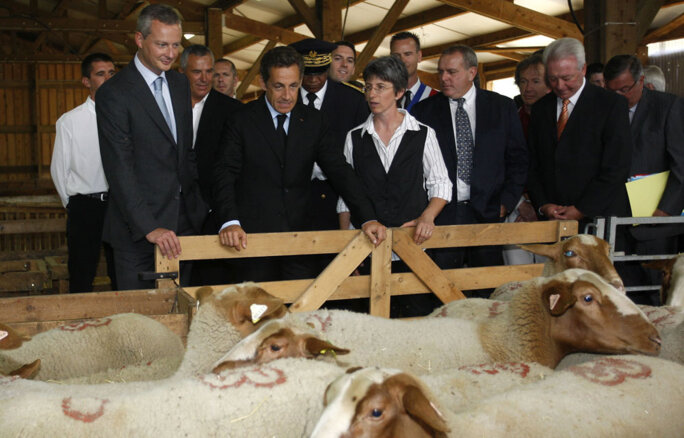
Enlargement : Illustration 2

But in an interview with French weekly news magazine Le Nouvel Observateur, Sarkozy’s lifelong friend and political ally Brice Hortefeux, who served as interior minister from 2009-2011, smugly joked: “Where’s the anti-Sarko front of which so much was made of before the summer? I don’t see anything, I don’t hear anything. [Former Sarkozy labour minister] Xavier Bertrand, who used to attack him every morning, where’s he gone? Under the table? And Bruno Le Maire? He’s become very cautious.”
Indeed, the tone has changed in the space of just a few months. Following his defeat on may 6th 2012, Sarkozy was criticised by some among his party as being “impulsive”, “narcissistic”, “cut off from reality”, and “obsessed by money”. Two years later, there is praise for his “energy”, his “experience”, and his capacity to understand the different currents within the French Right. His 2007 election campaign is now cited as an example to be followed, and Sarkozy’s term of office is glowingly compared to that of Hollande’s. As for the defeat in 2012, the errors committed are in no small part now presented (not least by Sarkozy’s campaign spokeswoman Nathalie Kosciusko-Morizet) as the fault of Sarkozy’s then-campaign advisor Patrick Buisson, a shadowy figure now denounced and reviled after secret tape recordings of discussions with Sarkozy were revealed earlier this year.
The collective critical debate about Sarkozy’s time in office that was called for by a number of UMP figures after the 2012 defeat was never held. The now-departed party president Jean-François Copé feared it would become a settling of scores against the former president. But some former Sarkozy ministers, including his health and sports minister Roseleyne Bachelot, one of those who called for the debate, took matters into their own hands. In her book À feu et à sang (‘The Fire and the Sword’), published shortly after the socialist victory in legislative elections in 2012 (held immediately after Hollande’s election as president), Bachelot writes about Sarkozy’s “hysterical [presidential] campaign”, one which was disorganized and in which the “rightist inclination” of Sarkozy had caused surprise among a number of UMP Members of Parliament (MPs).
She describes Sarkozy as a “lonely man”, who was “cut off from reality”, who “only listens to himself and his ultra-conservative advisors” and who reduced his ministers “to the role of decorative chandeliers”.
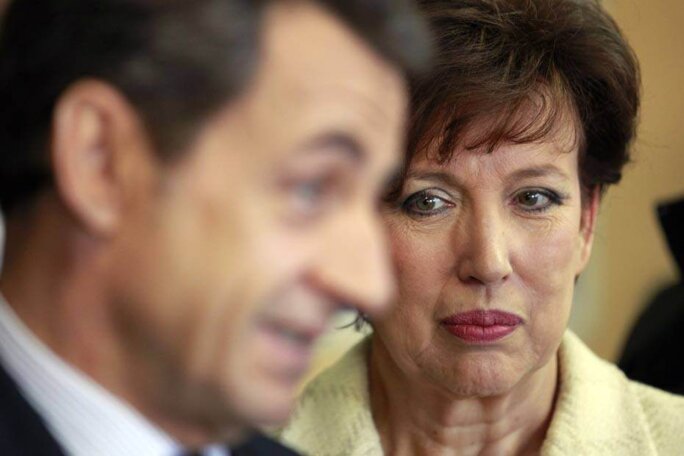
Enlargement : Illustration 3

“When the president complains of not being backed by his ministers he should only blame himself,” she wrote. “I find it unjust the manner which our candidate has […] distanced his ministers as if they were sick with a plague that he has himself inoculated.”
Veteran French journalist and author Franz-Olivier Giesbert, until recently editor-in-chief of weekly magazine Le Point, has written two books about the Sarkozy presidency. He also underlines the contempt the former president showed to members of his government, not least his prime minister, François Fillon, whom he described publicly as his “collaborator”. In the first of the two books, M. Le Président, published in 2011, Giesbert painted the portrait of an ego-centric, tyrannical and hysterical Sarkozy. In the second, Derniers Carnets (‘Last Notes’), which mostly charts events in 2012, Giesbert describes the everyday humiliations delivered by Sarkozy upon those ministers who became dissidents towards the end of his term of office.
He cites an incident involving Sarkozy and his higher education and research minister, Laurent Wauquiez, just months before the May 2012 presidential election. As an MP, Wauquiez represents a constituency in the central French Haute-Loire département (county), where a well-known lingery firm, Lejaby, was saved from bankruptcy. Wauquiez had played a key part in finding an investor to save the company, and he was unhappy at how Sarkozy had taken the credit for saving it. Giesbert recounts how Wauquiez told Sarkozy so directly with a blunt “Go fuck yourself.” Giesbert wrote that Sarkozy, at the end of his period in office, met with the same sentiment in “the looks of so many caciques of the ruling majority who intended to make him pay for past humiliations”.

Enlargement : Illustration 4
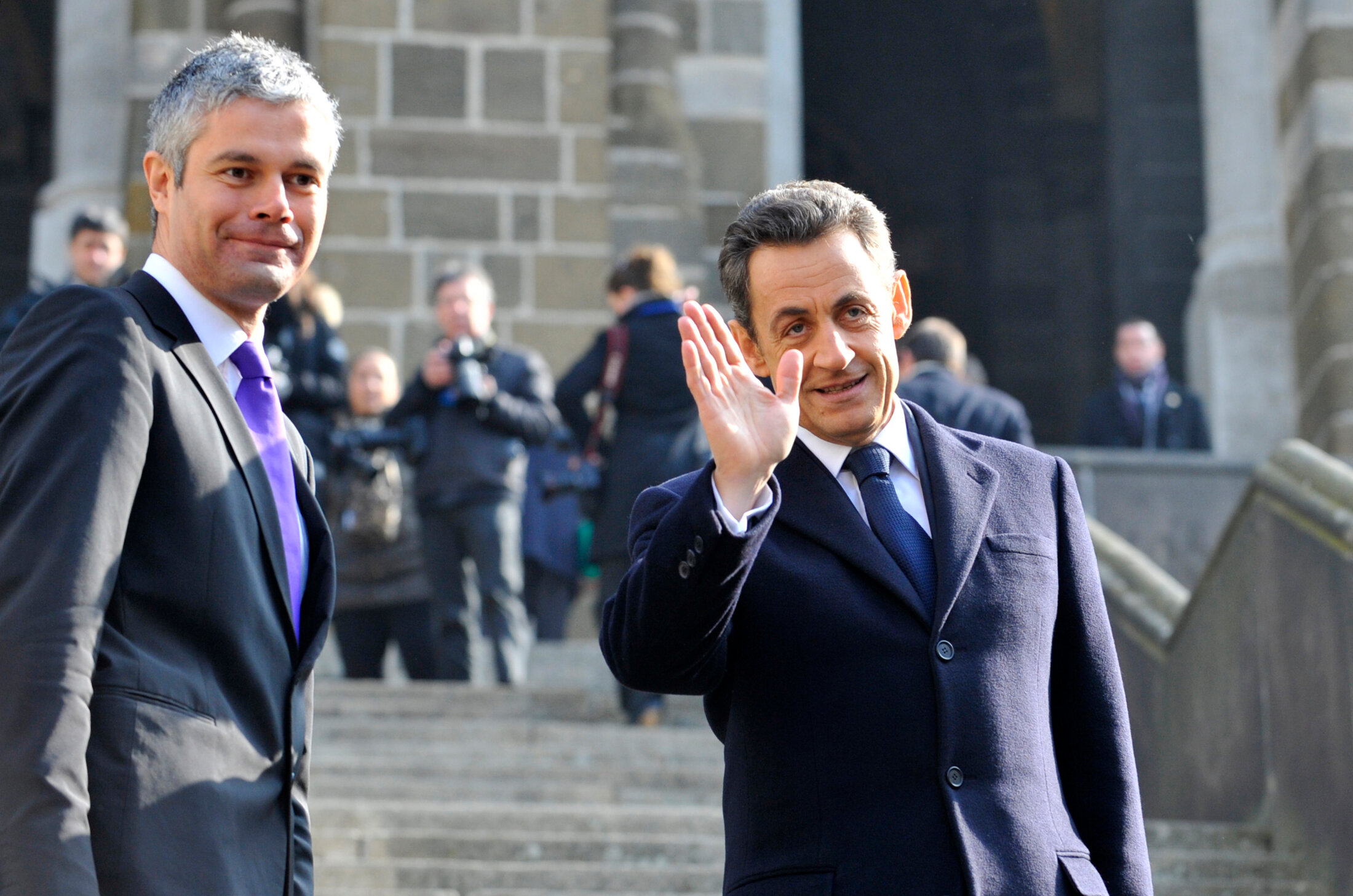
Marie-Célie Guillaume is a former chief-of-staff for UMP veteran Patrick Devedjian, Sarkozy’s successor as president of the general council of the Hauts-de-Seine département that lies on the west flank of Paris. She published a novel last year which was a thinly-disguised account of the battles between Sarkozy and Devedjian and which became a bestseller. The title of her book, Le Monarque, son fils, son fief (‘The monarch, his son, his fiefdom’), refers to Sarkozy, his son Jean and the Hauts-de-Seine political scene which was Sarkozy’s early power base into which he catapulted Jean. She writes of Sarkozy as a despot-like figure who relied on the support of a clan, and who took pleasure in humiliating Devedjian who he called “the Armenian”.
Two investigative journalists with French daily Le Monde, Fabrice Lhomme and Gérard Davet, published a book in 2011, Sarko m’a tué (‘Sarko killed me’, a morbid reference to the murder of French heiress Ghislaine Marchal) which compiled the accounts of 27 individuals who are described as “victims of Sarkozyism”. One of them, French journalist and former TV news anchorman Patrick Poivre d’Arvor, speaking one year before Sarkozy’s election defeat to Hollande, commented: “He’ll have few friends when he leaves, he has humiliated too many people.”
In an interview published in August 2013 in French weekly Le Point, Laurent Wauquiez made clear his feelings about the former president. “You don’t fail because of two months of [campaign] meetings, you fail over what has not been done during five years,” he said. “The lesson of this inventory is that tinkering with reforms in a sclerotic system is insufficient.”
At the end of 2013, in another interview for French regional daily Sud-Ouest, Wauquiez commented: “I have a lot of respect for Nicolas Sarkozy. There are lots of things he has succeeded in, others not so. But I am convinced that 2017 cannot be the revenge for 2012.”
Today, Wauquiez is one of those who has changed his mind. In an interview with Le Monde earlier this month, he declared his full support for Sarkozy’s bid for leadership of the UMP. “Our party needs a leader,” he said, speaking shortly before Sarkozy publicly announced his move for the UMP presidency. “I want Nicolas Sarkozy’s candidature [to be confirmed]. His authority and his energy would bring the new élan we need, with a clear direction. In a sclerotic debate we need new ideas. The capacity of Nicolas Sarkozy to shake up taboos is a strong advantage.”
François Baroin, former economy and finance minister under Sarkozy, was for a long while critical of the move to the Right under the former president, notably the focus on the issue of national identity. Speaking to French weekly JDD earlier this month he, too, has “naturally” declared support for Sarkozy’s return to power.
One of the most outspoken critics of Sarkozy among former members of his government is his ex-prime minister François Fillon who, over the past two years, has continually sniped at the man whose policies he defended during five years of office. “We acted in urgency, too often piece by piece, without always getting to the end of necessary and expected changes,” Fillon, who has his own ambitions for the presidency, has declared. “For me, political life is not a show. A political figure is not a star, his beliefs and his determination are not measured by his [appearances on] television programmes,” Fillon commented, pointing to Sarkozy.

Enlargement : Illustration 5

Fillon has also attacked Sarkozy’s self-styled image as the ‘The Providential Man’, whose destiny and burden is to lead France; “I was not born thinking that the French presidency was my destiny, and I am in fact shocked that one could reason in this manner,” Fillon told French weekly Valeurs Actuelles in October last year. On the numerous corruption scandals surrounding Sarkozy and the UMP party, Fillon, who was then eyeing the presidency of the UMP, said: Without wanting to dissuade the vocations [of some], the role of the next president of the UMP will be to continue with the financial and functional recovery of our movement, to also manage the consequences of the ongoing judicial investigations,” adding: “It is not [the scandal] affairs that contribute to the establishment of a serene climate within the UMP and a relation of confidence with the French people.”
Since the end of the summer holiday period, Fillon has repeated over and again that he will not take stands for any one candidate for the presidency of the UMP. But in a thinly disguised jab at Sarkozy earlier this month, he told a meeting of UMP Members of Parliament in Paris: “To manage our movement and to overcome the financial and judicial challenges, I said it would be good that a new generation takes its responsibilities because our party must valorise new talent, new methods.”
Beyond broken promises and a slide to the Right during his term of office, it is Sarkozy’s conception of political power and its exercise that has most attracted criticism. Dominique Paillé, a former presidential advisor to Sarkozy, once UMP party spokesman and who is now a member of the centre-right UDI party, criticised his former boss for his “constant will” to “cleave the French”. In an interview with French regional daily Le Télégramme, published in November 2013, he said he believed the former president was “victim of his own failings, and notably his incapacity to master his own behaviour when he was president”, adding: “This behaviour did not at all fit his position.”
Jean-Pierre Raffarin, a former French prime minister (2002-2005) under Jacques Chirac’s presidency, and who is a senior UMP figure, has also criticized “some behavioural weaknesses” of Sarkozy’s, and his “a little too solitary practice of power”, speaking in an interview with Europe 1 radio last year, when he said that he believed Sarkozy would return with “new ideas, with new attitudes”. In a post on his blog last December, Raffarin said Sarkozy’s keenness to be present across the media prevented him from developing policies that demanded “silence (which he doesn’t sufficiently create)”. Again interviewed by Europe 1 earlier this month, days before Sarkozy’s announcement that he was returning to active politics, Raffarin appeared to have changed his opinion. “Nicolas Sarkozy has given lots of reflection about his five-year term in office, about his projects,” the former prime minister declared.
Sarkozy has made much of his worldwide visits since leaving the Elysée Palace, meeting with international leaders often on the sidelines of his lucrative conference speaking tours for investment banks. His PR machine has relayed the several private talks he has held with heads of state, offering him the image of a man of influence flying above the turbulent political scene at home. But his personal standing with some abroad is far from that of a grand statesman.
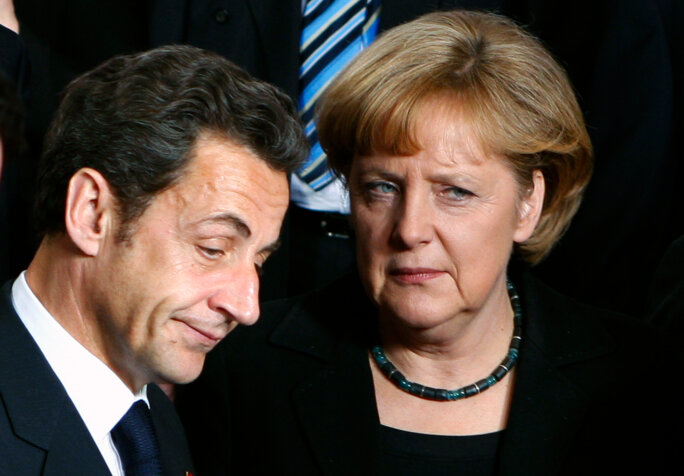
Enlargement : Illustration 6

His term in office was notably marked by his hot-and-cold relationship with German chancellor Angela Merkel, who nicknamed him “Mr bla-bla”. Her husband Jaochim Sauer reportedly offered her as a Christmas present a DVD of a film starring French comic actor Louis de Funès - whose characters were often hyper-active, accident-prone, clowning officials – as an insight into Sarkozy. In a May 2010 report by Mediapart on the relationship between Sarkozy and Merkel, several German press commentators spoke of what they perceived as the “arrogance”, “outsized ego” and “bungles” of the man who became internationally known as ‘President Bling-Bling’.
Even former Italian prime minister Silvio Berlusconi, whose political style bears more than a passing similarity with that of Sarkozy’s, told Italian daily Il Giornale in September 2012: “Former president Nicolas Sarkozy is a man in who arrogance wins over intelligence.”
French weekly magazine L’Express published the telling account of a close advisor to former Georgian President Mikheil Saakachvili. Sarkozy, then French president, had travelled to Tbilisi in August 2008 to broker a peace deal between Georgia and Russia after Moscow’s military intervention in support of South Ossetian separatists. “You should have seen Sarkozy, incapable of staying seated more than ten seconds and with his eyes glued to his watch,” recounted the advisor, whose name was withheld, describing the meeting with Saakachvili to agree a ceasefire between Georgia and the invading Russian forces. “You would have said [he was] a cocaine-addicted rabbit. If Micha signed it was because he had no choice. However, in this great agreement there is not one precise line drawn, not the least [definition of] zones, no sketch of a timetable for a retreat [...] as for sanctions in the case of the non-respect of pledges made, there’s no need to even talk about it.”
During his five years in office, Sarkozy was largely regarded abroad as he was at home. Writing in The New Yorker in December 2011, US journalist Philip Gourevitch painted a detailed portrait of Sarkozy in an essay entitled No Exit: “Because he is small and grandiose,” observed Gourevitch, “because he thinks France should lead Europe and that Europe should lead the world; because he is brazen and ruthless in pursuit of power, and autocratic and shameless in exercising it; because he is self-dramatizing, an exhibitionist and an opportunist, as well as able, shrewd, and adroit; because he represents himself as both a conservative and a reformer, and is driven not by ideology but by instinct and impulse; because he was not born or bred to rule but stormed the establishment as an outsider, convinced of his destiny to enter history by altering history’s course; because he comes off as contemptuous of snobbish élites, and because he also craves the acceptance of those élites; because he thrives in crisis and is prone to floundering when he’s not under extreme pressure; and because he seeks to project French influence abroad to boost his own stature at home, Nicolas Sarkozy is often described as a would-be Napoleon. This is not, as a rule, a term of admiration. Karl Marx pretty much insured that calling someone a Bonapartist would be a slur, when he wrote of Napoleon III, with reference to his uncle Napoleon I, that all great world-historic figures recur, first as tragedy and later as farce. Many French people these days will tell you that Sarkozy is both.”
Speaking on French radio RTL on September 17th, François Fillon declared: “I have always heard it said that one never changes. No-one. Not you nor me.” But whatever the warnings he has repeatedly given to his supporters within the UMP about the “pressures that could be brought” against them to fall into line, the Sarkozy communications team appears to have been winning the day. French daily Libération reported earlier this month on a campaign organised from Sarkozy’s HQ on the plush rue de Miromesnil in central Paris to rein in those in the UMP who have not declared support for his (then imminent) bid for the party leadership. Libération, which spoke to some of those contacted, described it as a campaign of intimidation, in which there were threats of unhappy consequences for the future political careers of those who refused to tow the line. While his former critics within the party suddenly fall silent, Sarkozy is back on his charger as the great unifier of the Right.
However, the former president’s image has not improved for those who were close to him during his time in office, as demonstrated in the harshness of numerous off-the-record comments that have followed his return to active politics.Criticism of the man personally and his manner of using political power, including to protect himself from criminal investigations, are as strong as ever. But at the moment, it is expressed in whispers.
-------------------------
- The French version of this article can be found here.
Englsish version by Graham Tearse


